“Chen Yinke and Oriental Philology: A Reflection on the Future of Inner Asian History and Philology” (陳寅恪與東方語文學──兼論內亞史及語文學的未來展望). New History (新史學) 31.1 (2020): 53-102.
Full text in PDF (academia.edu)
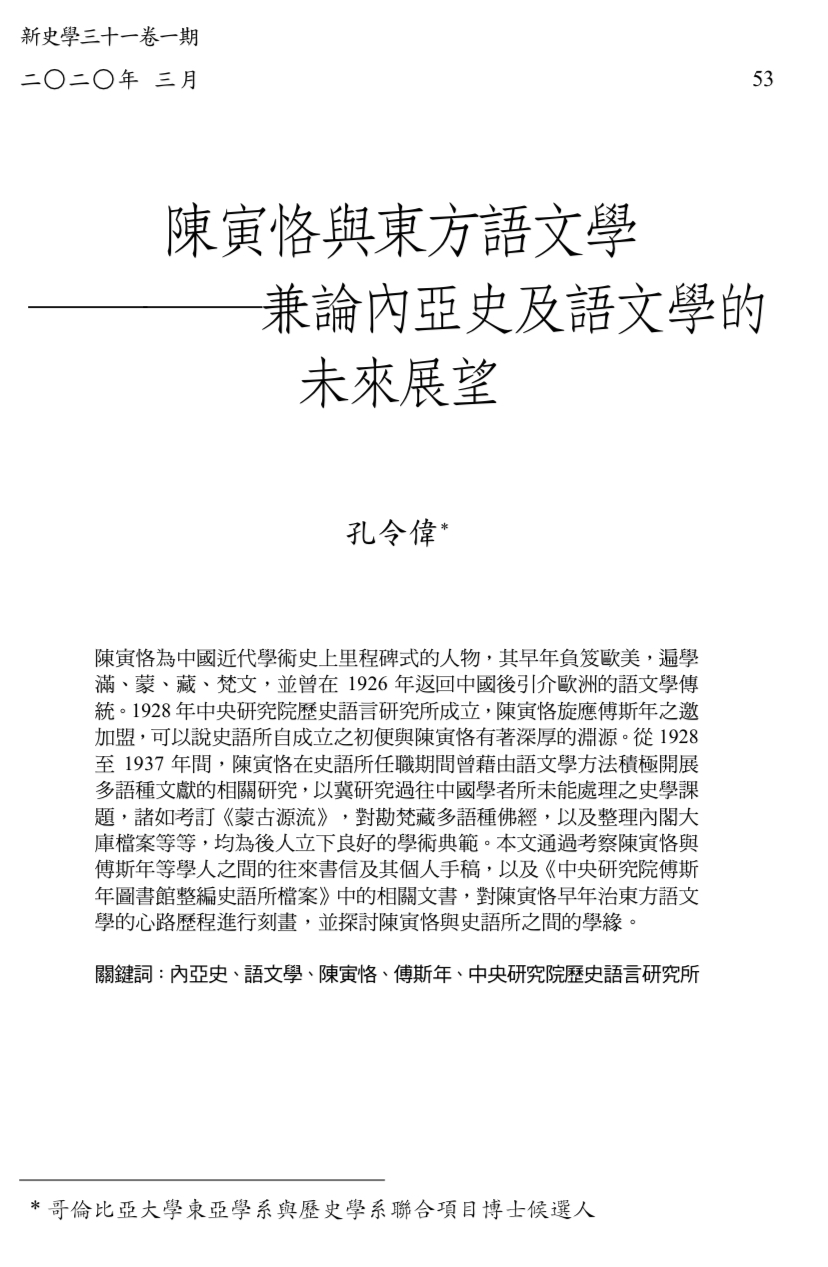
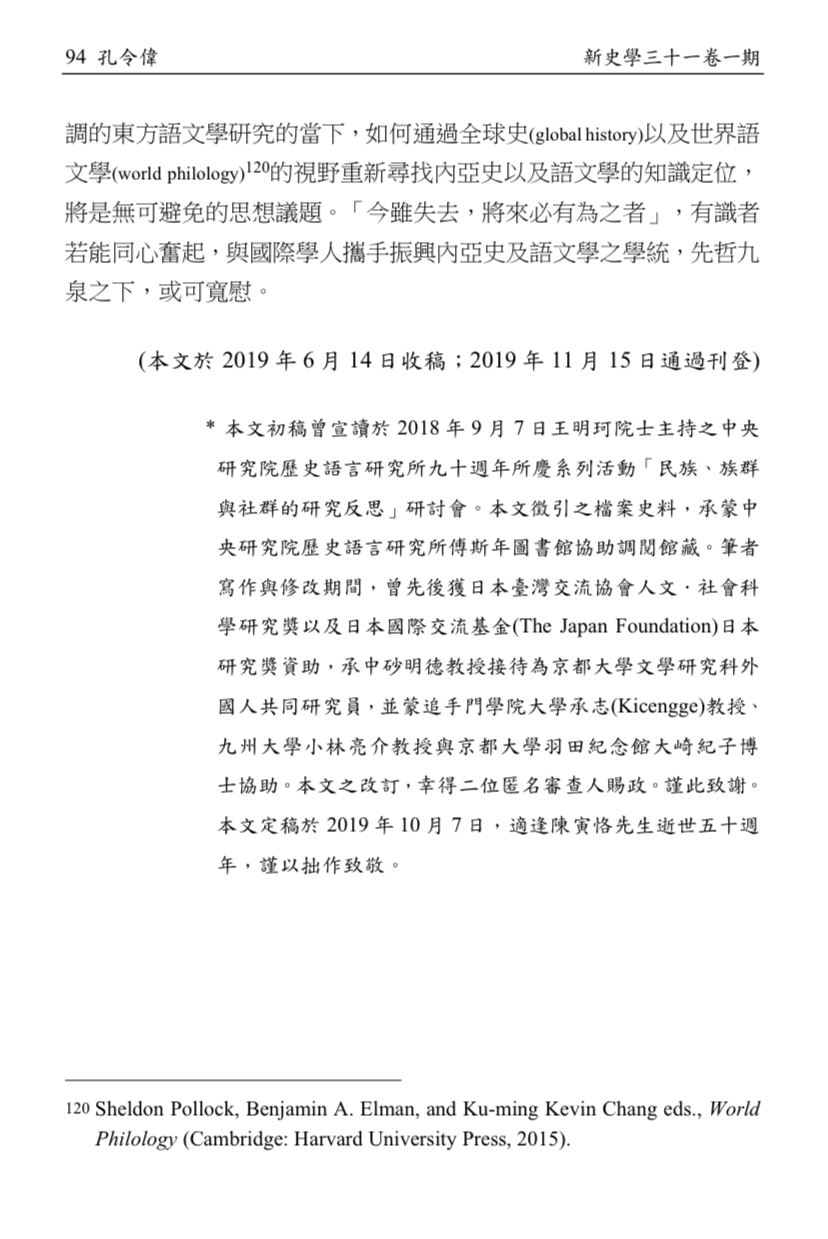
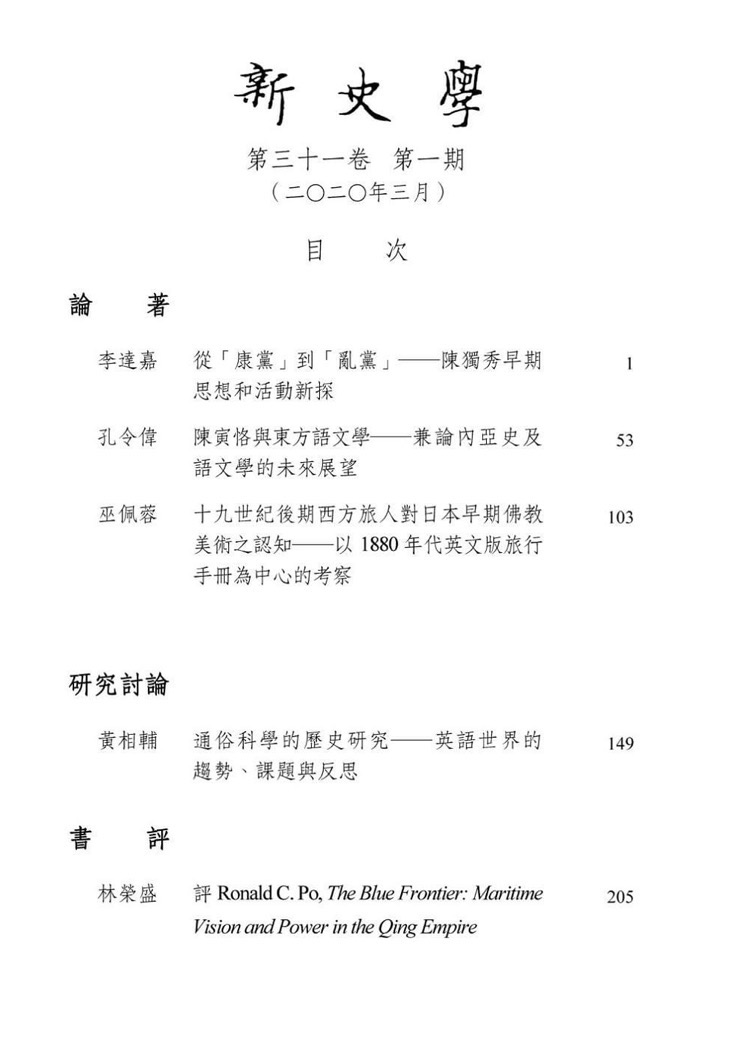
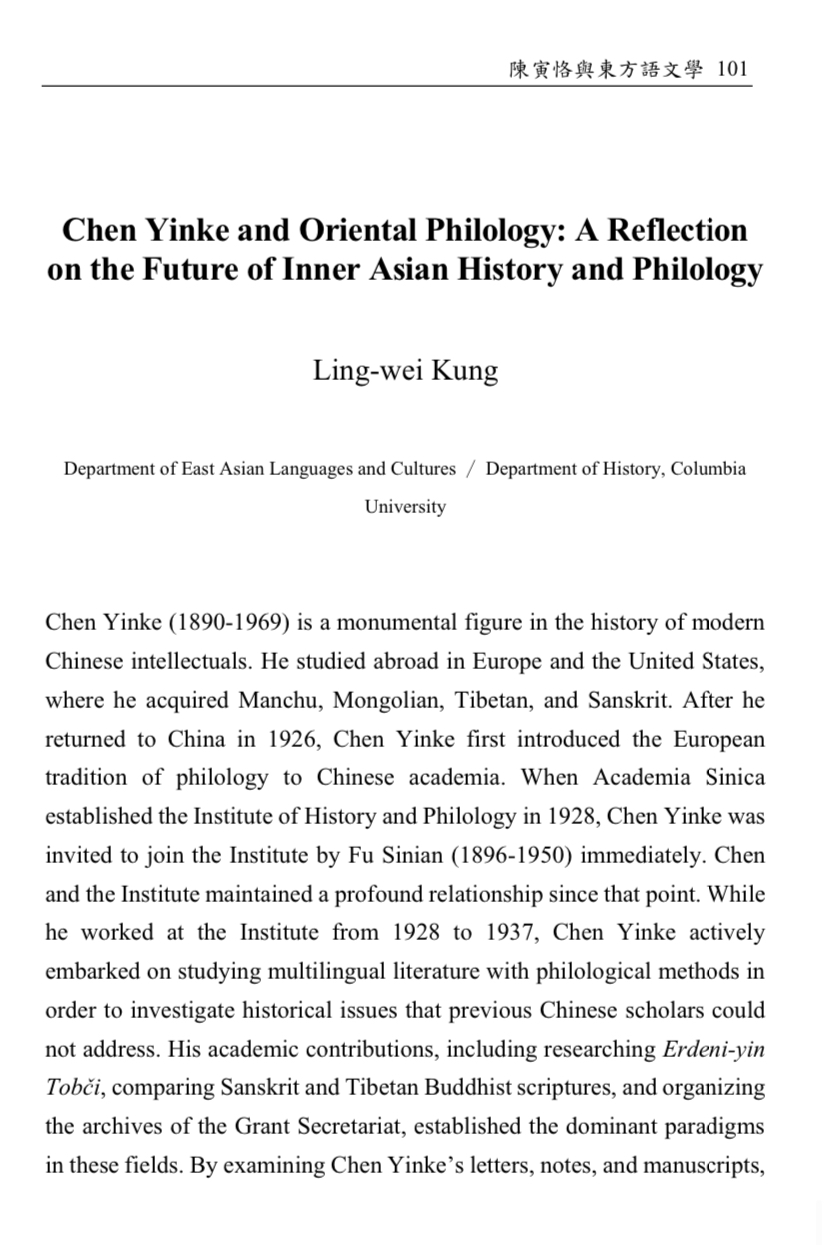
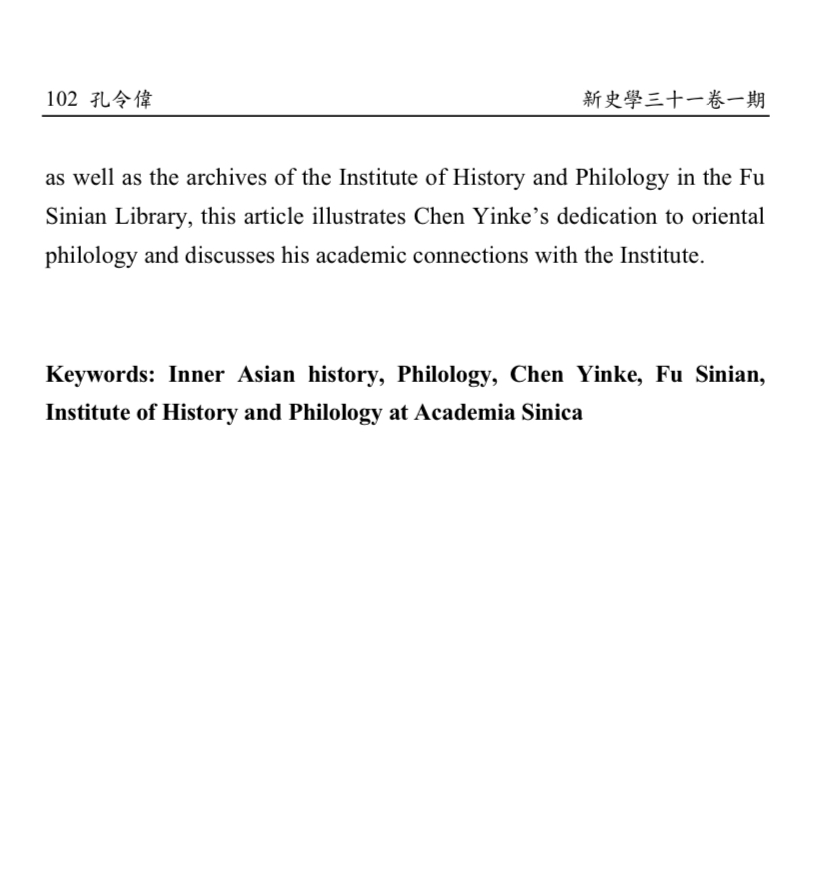
“Chen Yinke and Oriental Philology: A Reflection on the Future of Inner Asian History and Philology” (陳寅恪與東方語文學──兼論內亞史及語文學的未來展望). New History (新史學) 31.1 (2020): 53-102.
Full text in PDF (academia.edu)





Ling-Wei Kung. “Communication and Translation of Intelligence Documents between Ladakh and the Qing Court” (拉达克与清廷情报文书的传译过程). China Tibetology 3 (2019): 114-124.
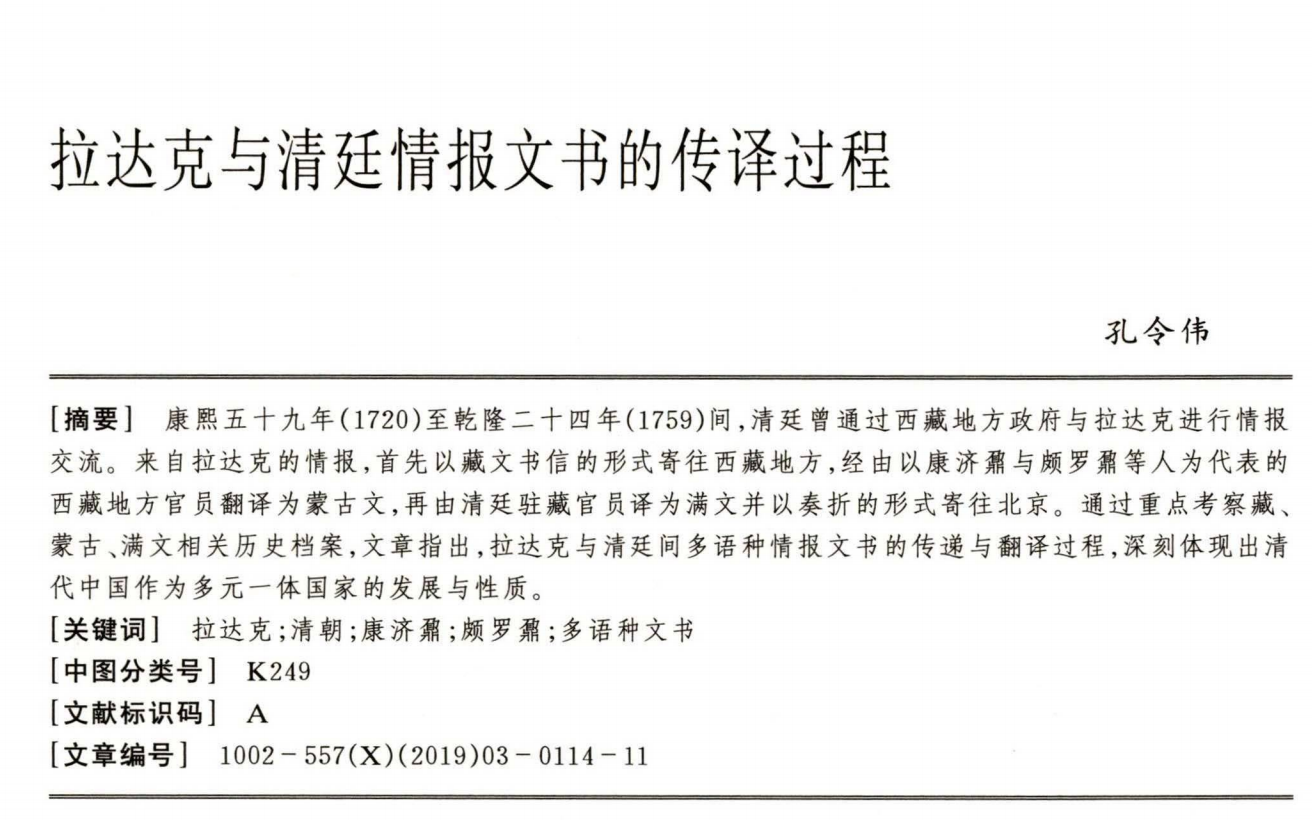
“Historical Effects of Tibetan Buddhism on Torghuts’ Eastward Movement: A Study of Newfound Tibetan Manuscripts” (从新发现藏文文献看藏传佛教在土尔扈特东归中的历史作用). China Tibetology 1 (2019): 125-136.
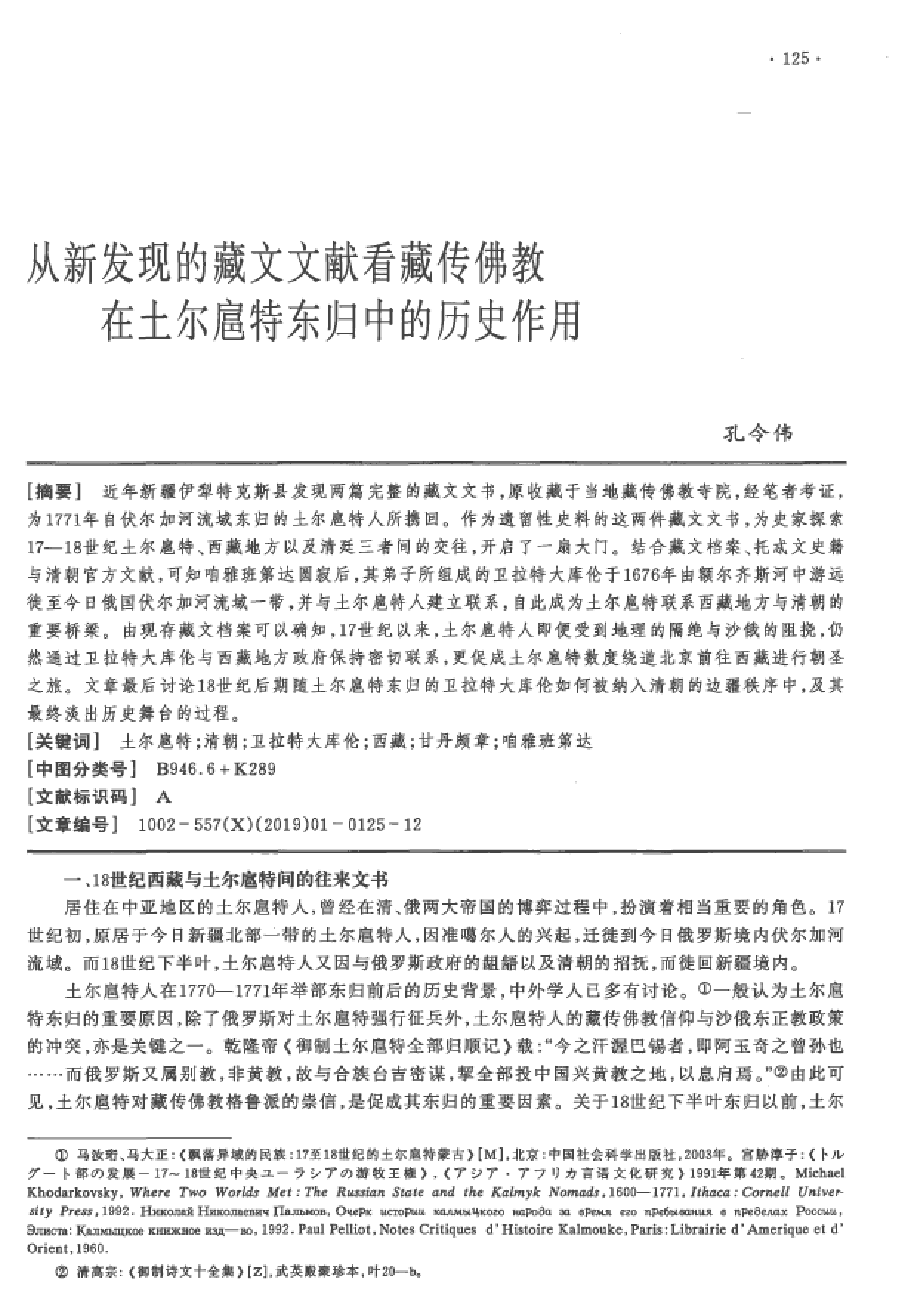
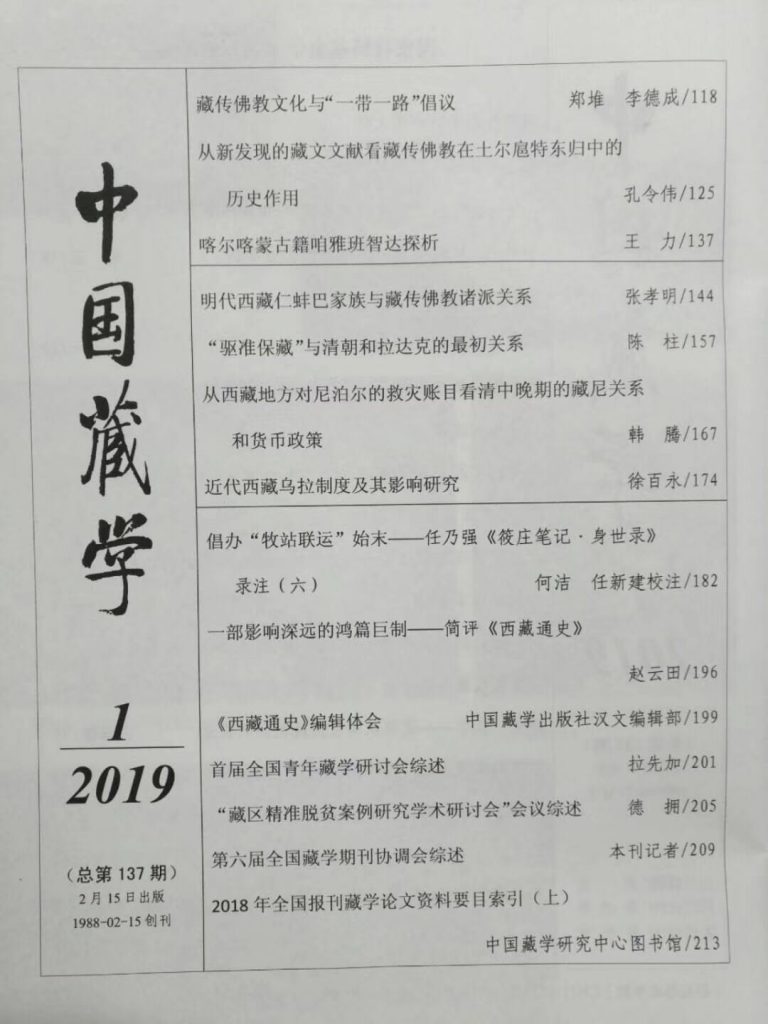
孔令伟:〈评寺田浩明《中国法制史》——从内亚视角谈法律多元主义与跨文明比较法制史的展望〉,《中国古代法律文献研究》 第12辑 (2018),页668-681。
百度盘全文下载https://pan.baidu.com/s/1wKXjjetHC11wzM3mVj2D9A
Kung, Ling-Wei. “Eurasian Intelligence Networks between Ladakh, Tibet, and the Qing Court, 1724-1768: A Study of Qing China’s First Recognition of Mughal India.” Studies in Qing History 2(2018): 27-48.


Kung, Ling-Wei. “The Transformation of the Qing’s Geopolitics: Power Transitions between Tibetan Buddhist Monasteries in Amdo, 1644–1795.” Revue d’Etudes Tibétaines, 45 (2018): 110-144.
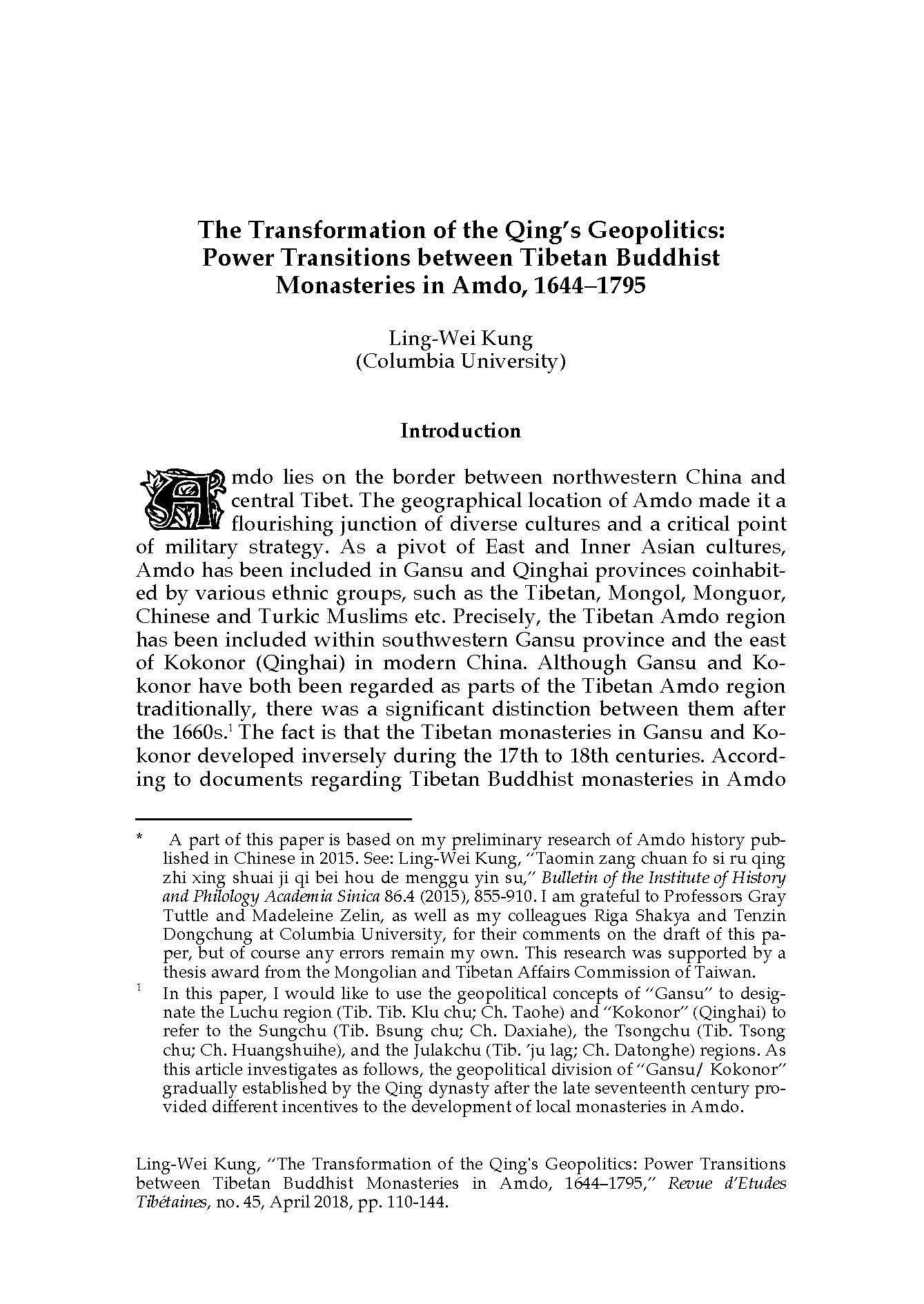
Full-text access:
“Between Statutes and Dharma: The Regulation and the Punishment of the Mongolian Monks in the Early Qing Period” (國法與教法之間: 清朝前期對蒙古僧人的禁限及懲處 ──以《理藩院滿蒙文題本》中蒙古僧人坐罪案例為核心). Journal of History and Anthropology 歷史人類學學刊 15/2 (2017): 187-220.
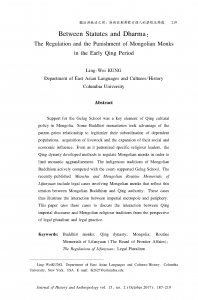
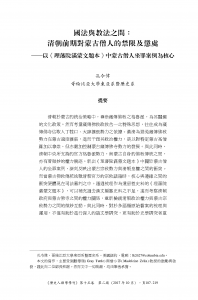
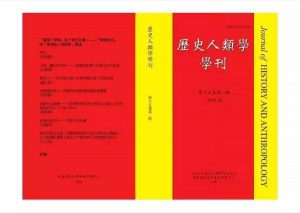
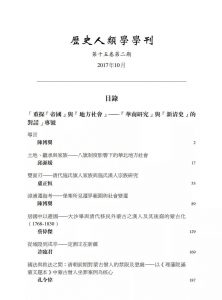
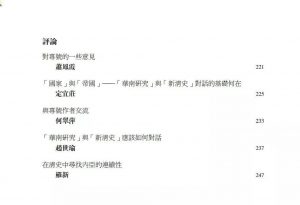
Ling-Wei Kung, “The Networks between Oyirad Yeke Küriye, Tibet, and the Qing Dynasty: A Study on Tibetan Documents Found in Xinjiang Recently” (18世紀におけるオイラト=イフフレー・チベット・清朝間のネットワーク ──新疆新発見のチベット語文書を中心に). Translated by Nobuaki Murakami. Quaestiones Mongolorum Disputatae 13 (2017): 11-24.
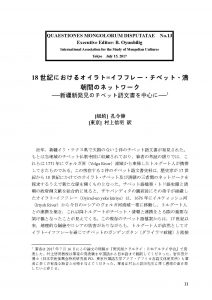
Full-text access: https://columbia.academia.edu/LingWeiKung